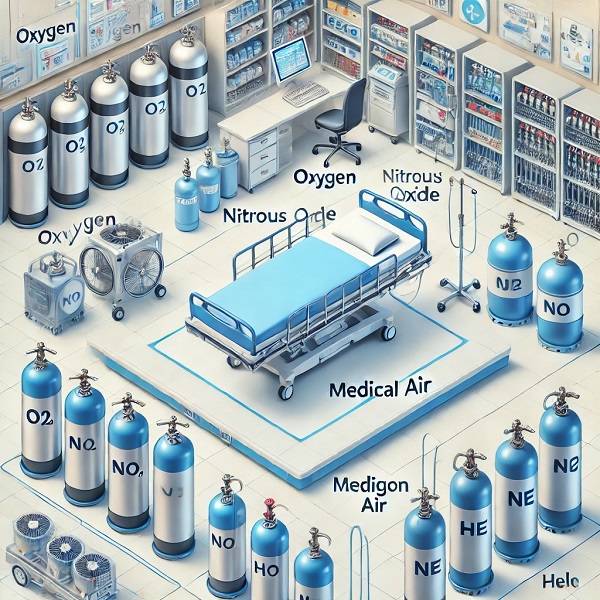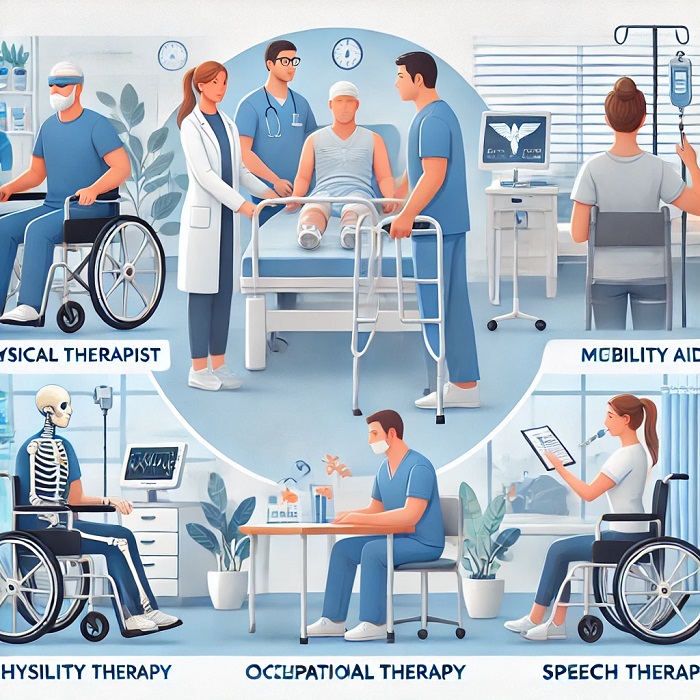The Role of Mental Health Services in Comprehensive Patient Care
In recent years, the importance of mental health in overall patient care has gained widespread recognition. While physical health has traditionally been the primary focus in healthcare settings, the role of mental health services is now seen as critical in providing comprehensive care. Integrating mental health services into patient care plans ensures that individuals receive holistic treatment, addressing both psychological and physiological well-being.
1. The Growing Need for Mental Health Services
Mental health disorders affect millions of people worldwide, with conditions like depression, anxiety, and PTSD (Post-Traumatic Stress Disorder) being particularly prevalent. According to the World Health Organization (WHO), depression alone affects approximately 264 million people globally. Left untreated, these conditions can significantly impact physical health, leading to higher rates of chronic diseases like cardiovascular conditions, diabetes, and even cancer.
Given the inter-connectedness of mental and physical health, providing mental health support is essential for:
- Reducing Chronic Disease Risk: Addressing mental health issues like depression and anxiety can help reduce the risk of conditions like hypertension, heart disease, and other chronic illnesses.
- Improving Patient Outcomes: Patients with mental health support tend to adhere better to medical advice, have faster recovery rates, and maintain healthier lifestyles post-treatment.
- Preventing Hospital Re-admissions: Mental health services can reduce hospital re-admissions, particularly for patients with co-occurring mental health and physical conditions, by ensuring patients have the emotional and psychological resources needed to manage their health.
2. Mental Health and Primary Care Integration
For years, primary care physicians have been on the front lines of diagnosing and managing physical illnesses, but many are now taking on a greater role in mental health care. Integrating mental health services within primary care settings allows patients to receive comprehensive care without needing multiple appointments with different specialists.
- Screening and Early Intervention: Primary care physicians are increasingly being trained to screen for mental health conditions, providing early intervention that can prevent the worsening of these disorders.
- Co-Management of Care: Mental health professionals can work alongside primary care providers to create co-management care plans for patients, ensuring both physical and mental health concerns are treated simultaneously.
- Patient-Centered Medical Homes (PCMH): This healthcare model integrates primary care, mental health, and other specialty services to provide coordinated, comprehensive care that addresses all aspects of a patient’s well-being.
3. Mental Health Services in Specialized Care
Mental health services are also essential in specialized areas of healthcare, such as oncology, cardiology, and neurology. Here’s how mental health care plays a role in specific patient populations:
Oncology Patients
Cancer patients frequently experience depression, anxiety, and trauma associated with their diagnosis and treatment. Mental health professionals can help them cope with the emotional toll of their illness, reduce stress, and improve their ability to manage symptoms.
- Psychosocial Oncology: This field focuses on the mental and emotional well-being of cancer patients, ensuring they receive counseling and support while undergoing treatment.
- Survivorship Care: For cancer survivors, mental health services help patients reintegrate into daily life after treatment and reduce the likelihood of post-treatment depression or PTSD.
Cardiac Rehabilitation Patients
Heart disease patients often face significant lifestyle changes after treatment, which can lead to mental health challenges. Depression and anxiety are common in individuals recovering from heart attacks, stent placements, or bypass surgery.
- Emotional Support: Psychologists or counselors in cardiac rehabilitation programs help patients process their emotions and stress, which can reduce the risk of future cardiac events.
- Behavioral Modifications: Mental health professionals work with patients on behavioral changes that improve their cardiovascular health, such as managing stress, quitting smoking, and adopting healthier diets.
Neurology Patients
Conditions like strokes, traumatic brain injuries (TBI), and neurodegenerative diseases can lead to cognitive and emotional difficulties that require mental health interventions.
- Cognitive Rehabilitation Therapy: This therapy helps patients regain memory, attention, and problem-solving skills post-injury.
- Depression Management: Depression is common in patients with neurological conditions, and addressing it can improve outcomes and reduce disability rates.
4. Mental Health Services and Chronic Disease Management
Mental health services are particularly important for patients with chronic diseases, as psychological well-being often influences disease progression. Here’s why mental health is crucial in chronic care:
- Motivation and Compliance: Patients dealing with chronic conditions like diabetes, arthritis, or chronic obstructive pulmonary disease (COPD) often require long-term lifestyle changes and adherence to complex treatment regimens. Mental health support can keep patients motivated and compliant with their care plans.
- Mind-Body Connection: Studies have shown that mental health affects the immune system, meaning that treating mental illness can directly benefit physical health outcomes. Stress reduction, for example, has been linked to improved immune function and decreased inflammation.
- Pain Management: Chronic pain, a frequent companion of long-term illnesses, can lead to depression and anxiety. Mental health services help patients develop coping strategies and address the emotional components of pain.
5. Breaking the Stigma: Making Mental Health a Priority
Despite growing awareness, mental health remains stigmatized in many parts of the world. This stigma can prevent individuals from seeking the help they need. Healthcare institutions have a responsibility to break this stigma by:
- Normalizing Mental Health Discussions: Encouraging open conversations about mental health within healthcare settings can reduce the shame and fear surrounding these conditions.
- Providing Accessible Mental Health Care: Ensuring that all patients, regardless of financial or social status, have access to mental health services is critical to comprehensive care.
- Training Healthcare Professionals: Educating healthcare providers about mental health can empower them to recognize signs of mental illness early and provide appropriate referrals.
Conclusion
Mental health services are not a luxury or an add-on to traditional healthcare—they are a critical component of comprehensive patient care. By addressing both mental and physical health, healthcare providers can improve patient outcomes, reduce the risk of chronic diseases, and ensure long-term well-being. As mental health continues to be prioritized in healthcare, more patients will benefit from the integrated, compassionate care they need to thrive.















Leave a Reply